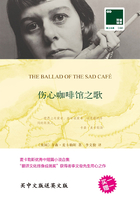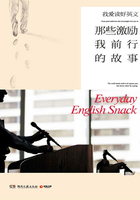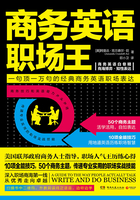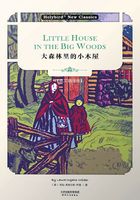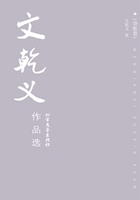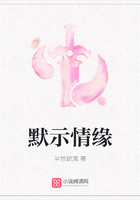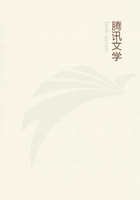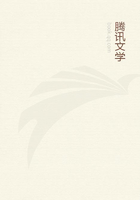Tao Zhu was promoted "one grade up" by Mao Zedong, but in fact he rose several more, being transferred from Guangxi where he had had several successes against bandits to Guangdong, to take over the Southern Provinces and Guangdong Provincial Bureaux, becoming the highest-ranked offcial in the area.
Land reform had begun in Guangzhou in eleven trial counties, along lines personally devised by Ye Jianying. It emphasised looking after industrialists, working together with the middle peasants, protecting the assets of overseas Chinese, concern for democrats and former rebels, and preserving the worker-peasant alliance. Although ideologically it may have been somewhat watered-down as a policy, those goals were entirely in keeping with the Land Reform Law. Ye and his subordinates were hoping to utilise Guangdong's unique characteristics as strengths and turn the revo-lution into a stable régime, in an area whose built environment and economy were both far more developed than the national average.
It was on this point that Ye, Fang and the others came into contention with their superiors in the South China Bureau. Ye knew that this crucial difference in opinion could lead to a policy split over land reform between him and the central leadership, but he clung to the belief that as long as he stayed within the bounds of the Land Reform Law, which gave ample room for interpre-tation, he could avoid trouble both above (from the centre) and below (in the policy's implementation). He was wrong. The South China Bureau came out with criticism after criticism, but Ye and Fang persisted in their interpretation. In the contest that arose, Chairman Mao supported the other side. He had always advo-cated "seeking truth from facts," but suddenly instead emphasised the need for ideological purity and for the whole country staying"under one flag," seeing the manifold diversity of national land reform as a battle that could only have one master strategy.
As well as the damage done to the province's corps of cadres, the greater harm was that Guangdong was the nation's most devel-oped industrial base and represented the greatest potential source of economic assistance from overseas Chinese. It hurt Marshal Ye deeply over to see Guangdong's economic strength dwindle away in the decades after Liberation. Towards the end of the seventies, after the Cultural Revolution, he would often return to Guang-dong to rest and recuperate, lamenting the decline of the province's industry and the poverty of its people. During one visit home he toured the eastern part of Guangdong but was unable to bear what he saw. He finally told the province's then-director:"Something new needs to happen here. If Guangdong is still this poor, then things aren't working as they should be."
After land reform, a new word entered the vocabulary of Guang-dong political life, although it was never mentioned in documents or newspapers:"local cadres". It was a near-byword for "blacklisted". Anyone could ask questions about such cadres: was their record free of suspicion? Had they been resolute during the struggle for Liberation? Had they supported the armies and cadres sent from the north? Were they known to complain or make suspicious remarks? Did they have links abroad or with Hong Kong /Macau? And so on. They were kept out of important positions, however good their qualifications or abilities, at best becoming vice-secre-tary of some relatively minor Party committee or government ministry, even many revolutionaries from the twenties and thirties who had kept the red flag flying on Hainan Island continuously for twenty years were dismissed and sent to their home counties. Some female comrades had held very high positions during the revolu-tion, and were still keeping departments running, the later-famous women warriors of the "Red Women's Army". Most of them were also demobilised.
Faced with discriminatory treatment despite being one of the cadres sent down by the centre, Guangdong native Gu Dacun lodged a complaint. He and Peng Pai had been leaders of the Guangdong peasant movements, led the Guangdong delegation to the 7th National Congress of the CCP (at which he was chosen to be a supplementary member of the Central committee), had been praised by Mao Zedong personally on several occasions for how he had continued the struggle in immensely trying circumstances, at one point with only twelve men left in the province under his command, as "Guangdong's revolutionary banner" or "the rose with thorns." In the early days after Liberation as he was working on land reform in the Northeast, Gu had spoken against unnec-essary violence and executions before being transferred back to Guangdong to serve as Vice-Chairman of the Guangdong People's Provincial Government, First Vice-Secretary of the Southern Prov-inces Bureau and Secretary of the Guangdong Party Committee.
After the purge of Fang Fang, however, Gu and Feng Baiju, another revolutionary veteran who had held Hainan for over twenty years for the CCP, had suffered repeated humiliations. From 1953 to 1956, Guangdong had political campaigns for "anti-land-lordism", "oppose the Feng Baiju-Gu Dacun Anti-Party Alliance"and string of others, all of which simply led to repeated criticism and struggle meetings targeting "local cadres". The voices of those who actually understood the local people and prevailing economic conditions were entirely ignored, with predictable effects on the province's development.
The Eighth CCP National Congress opened in 1956, setting out a plan for development centred around moderately paced reform and "seeking truth from facts"; the country entered into a rather more promising period for development. According to Deng Xiaoping's 1992 Southern Tour by Guangzhou City People's Polit-ical Consultative Conference Chairman Chen Kaizhi, Chairman Mao visited Guangzhou in 1956, listening attentively to the report of South China Bureau Secretary and Guangdong Provincial Party Committee Secretary Tao Zhu. As he was being told:"There are fourteen Chinese mainland-funded banks in Hong Kong, we could attract foreign investment through them. On the one hand this would boost our own banks, but more importantly it would allow us to bring in foreign currency as investments to help build the country," Mao's eyes lit up, and he nodded his head in agreement as if remembering what he himself had recently said:"In certain light industrial contexts the building and profitability of factories can be achieved very quickly; after the final investments are made, within four years a factory can repay its debts and make enough profit to fund two or three new ones, or at least half of one. Why do we not do this? To think that you can go from thinking about an atomic bomb to dropping one in a heartbeat is unrealistic; in the same way, taking a passive stance towards coastal industry is not correct."
In response, Mao said "opportunities like this are hard to come by." Then, as he was about to go for a swim in the Pearl River, he said to Tao:"Your idea is a good one, I'll take it back to Beijing and discuss it." It is a pity that Mao returned to Beijing and never mentioned Tao's suggestion. Guangdong was waiting for rain that never came. Tao sent people to Beijing to ask the Chairman if there had been progress, and the response was in polar contrast to Mao's earlier opinion:"I have looked into this, and do not consider it feasible. We may not be able to repay foreign debts." Even more disappointing:"Lending abroad is no better than borrowing. The risks are too great that the country will be weakened." And so in 1956, Guangdong had to let its first opportunity to open up to the world since the foundation of New China pass by.
In 1957 Mao gave several speeches at a meeting in Chengdu expressing his antipathy in the previous year to "opposition to hasty development", and the Party's Eighth National Congress' antipathy towards "individual superstition." The political climate suddenly swerved Left. On the 10th of March, Mao declared in a speech:"Hasty development is Marxist; opposition to it is anti-Marxist!."Then in January 1958, in a meeting in Nanning, Mao said "where building up an economy is concerned, the Left is better than the Right. There is nothing about seeking magnificent achievements and instantaneous rewards that is to be discouraged." To elaborate, he declared that he wanted China to make "a Great Leap Forward."The People's Daily issued an editorial:"Our nation's circumstances are ready to make this Great Leap Forward."
As reported quantities of agricultural produce reached stellar heights all over the country, the People's Communes and Great Leap Forward forced grassroots cadres to drive a car whose steering wheel and breaks had stopped working into a hole they could not possibly avoid. Even the pragmatic Cantonese could not control it. Even the traditionally bountiful Pearl River Delta had to lie to keep up. Even Li Ziliu, later head of Guangzhou City Government but at the time a grassroots cadre in Shunde village, later admitted publicly that he had lied in 1958. However, the first place to report absurd yields in Guangdong was not Shunde, but in the place that would later depend on it for emergency relief - Lian County.
Lian County's claimed figures were jaw-dropping: 60,473 jin of rice, or roughly 30 tonnes, per mu of land.[2] Why was the figure so precise? Because it was calculated on the spot as the rice was harvested. Except that all the rice from an area of fields one hundred mu in size that was ripe and ready to be cut had first been transplanted into a 1.73 mu paddy field before harvesting. Then, it was diligently calculated exactly how much rice had been produced "per mu of harvested land". Similar examples abounded all over. Over a hundred kilometres away from Guangzhou, a county secre-tary received some happy news, which only troubled him. For the exemplary performance of Dongguan County (at falsifying figures) during the last harvest, the province chief was going to host a cere-mony in the Sun Yat-Sen memorial hall at which the county would be presented with a Jeep!
A Jeep! This was incredible news; at the time county-level secre-taries only had bikes. But a Jeep? They were restricted to prefecture heads and above! But, the Dongguan secretary's sense of justice gave him no option but to return the car he hadn't earned to the provincial committee. He admitted that the figures had been fabri-cated; they'd copied every other county and put 19 mu worth of rice into a much smaller field before "harvesting it". The Jeep went back to the provincial committee, with a written self-criticism attached to it. South China Bureau Secretary Tao Zhu was aston-ished that there were still such honest cadres! He made a note of the young man's name: Lin Ruo.
10
In tiny Lufeng County, the succession of campaigns was proving a headache for publicity chief Xie Fei. With the pressures of being leader of a county committee as well as running local publicity, it could be said that to some extent, the whole county's future depended on him. The first People's Commune in Lufeng was set up on the 27th of September 1958, less than a month after the central government announced that they should be established nationwide. Three days later the entire county had been assembled into 17 communes, and in January 1959 these were reorganised into 24. This was quicker than most countries manage to mobilise for war. As per the government's instructions, the communes were organised to be as large and as collective as possible - agricultural produce was owned by all the commune members, and distributed by communal canteens.
It was beyond amazing to the peasants that they didn't need money to eat in the canteens, cadres encouraging them to eat their fill. Was this really what Communism had brought about? The communes also practised "military organisation, martial opera-tion and collective living," which meant for example that men and women slept segregated in dormitories. Even cadres had diffculty accepting this last part because of objections from their wives, so after a little while that change was dropped. Lufeng took the slogans of eating one's full to heart, but Xie Fei, who'd grown up on scraps of sweet potato, couldn't help but worry.
One day, a team of men and women, young and old, set off to the next village early in the morning. They carried no tools, each one beaming with smiles and in high spirits, as if going to visit relatives. Behind them walked a man wearing an old straw hat, a basket of manure hanging from his elbow - Xie Fei. He had always advocated doing research "on the ground" as it were, and today he was practising what he preached. He was going with the group to check up on a rumour. It had been reported that some work teams ate seven or eight times a day. If nothing else, it was hard to believe that a single person could eat that much.
The team set off from Luoxi towards Hetian. Xie Fei knew the area well, having crossed it many times during his guerrilla days. Back then he'd been in disguise to avoid the enemy; this time he was shadowing his own people, which was a strange way to bring back memories. He saw that whenever they passed a village, the canteen there had just started serving and the team would go in. Because this was the village next door, the atmosphere was warm and friendly, the canteen manager calling them in to eat a bowl of noodles. It was only breakfast, so they ate somewhat simply. After breakfast, they carried on their way, arriving at another village as the sun was rising and eating a second breakfast. After eating they went on their way. The villagers here were none too happy, but the canteen rules were clear: people ate for free, so they had no cause to stop people from eating there.
This carried on well into the afternoon, continuing for over ten miles, from Luoxi to Huangsha in Hetian. They'd eaten their way into another commune, a microcosm of the rest of the country. They'd eaten two breakfasts and two lunches each. Meanwhile Xie Fei, following behind, hadn't eaten once and was beginning to feel faint. He couldn't help but admire the size of a peasant's stomach. If it were really possible to let them fill their belies, let them eat as much as they wanted, as many times a day as they liked, what more was there for them to want in life? The only problem was, for how long was that system sustainable?
Later, at an informal meeting with other county heads Xie Fei reported what he'd seen in disguise. He did not directly oppose the communal canteen policy; to do so would be to invite dismissal or worse. Tackling the issue from the socialist perspective that it kept the masses from work, he maintained that:"If this situation where everyone eats everyone else's food carries on, there'll be no time to get any fieldwork done. It will lead to problems in the long run;the effect on the masses will be intense and all the progress of the Great Leap Forward will be undone." He paused. All those present remained silent, their brows furrowed. No-one challenged him, so he continued:"The masses have welcomed the new canteens, which embody the superiority of socialism. But the masses here eat too much however you tally it up. In half a day I saw a troop eat four meals; if this continues they'll eat all the food in the county! I followed them to Huangsha in Hetian, and saw that in the canteen there all they had for lunch was sweet potato congee. A sign in the window said "no outsiders", so clearly they're even running low on that. If we run out of food before the harvest, what then?
Lufeng had resisted the pressure to feign abnormally high yields. As the editor of the county newspaper, Xie Fei had been under immense pressure to do so - whenever he bumped into another cadre, they'd ask, only half-jokingly, "so when are we going to hear the good news about Lufeng's harvest?" He'd also had to lock horns several times with higher-ups in the Publicity Department about the lack of indications that a bumper crop was on its way.
It hadn't been long before people started claiming they'd found ways of producing literally millions of jin of sweet potato. When Xie heard this, he secretly went out to the fields to check the truth of these assertions. Hundreds of such reports passed over his desk; the first reading would make him boil with excitement, the second would bring him out in a cold sweat. He could see that people were ignoring the facts in front of their faces to produce these figures, but if he kept these stories suppressed and refused to publicise them, he might be accused of any number of counter-revolutionary crimes.
He did his best to filter the stories, including three which he had real diffculty condoning. One was a purposed method of creating 500-jin sweet potatoes - the "inventor" had suggested building a huge frame and feeding the sprouting vegetables on a glucose drip. Everyone said it was worth a try, but after consider-ation Xie decided to put the idea to one side to be looked at "later". Since the plan gave no consideration to how vegetables could be fed via an intravenous drip, he decided to reserve the county hospital's incredibly precious stock of glucose for the purpose for which it was meant - saving lives. The second was to dig a hole seven chi[3] deep in every field, fill it with three hundred thousand jin of manure, and pile earth on top of it. The liquid that bubbled out could be used on the crops; the methane produced could be burned as it exited, creating smoke that would then produce manmade rain. It was hoped that this two-pronged method could lead to a one-mu field producing 100,000 jin (50 tonnes) of wheat. This was generally held to be an imaginative, bold idea, but Xie put it into the "later" pile along with the first idea. How much methane would 150 tonnes of manure produce? How much methane would need to be burned to induce rain? None of the figures were precise.
Soheturnedtothethirdproposal;likethefirsttwoitwasuncon-ventional to say the least. Xie couldn't keep from laughing when he read it, but he had to admire the fact that someone had written such nonsense about sweet potatoes. This indulgently fantastic proposal suggested irrigating sweet potato fields with stock from dog meat. The creator of this proposal was of the opinion that dog was the most delicious and nourishing kind of meat, and that sweet potatoes would therefore like to eat it. Looking at the matter scien-tifically, his expert eye had realised that because sweet potatoes had no teeth, they couldn't actually eat meat, or indeed anything else. His genius solution was to suggest putting it into their water.
Xie thought to himself, compared to all the other ludicrous plans he'd heard, this one threatened to have the least bad side-effects, and to cost the least. Even if the peasants adopted it, killed every dog they could get their hands on and turned them into stock, there was no way they'd put all of it onto the fields. If they were willing to walk for miles to get their fourth meal of the morning, there's no way they'd let a pot of meat stock go to waste, and even if some of it did find its way onto the fields it would just be like adding a low-quality organic fertiliser. It certainly couldn't do much harm. After thinking it over several times, Xie decided to order his subordinates in the Publicity Department to announce the bold new experiment of irrigating sweet potatoes with dog stock that was being performed in Lufeng county. He had to have some kind of yield-enhancing master plan to point to, and at least this one wouldn't cause too much damage.
Unsurprisingly, the sweet potato crop didn't suddenly reach unprecedented levels. On the positive side, the county wasn't left with no supplies after the harvest, and the peasants were kept happy with a few bowls of dog meat to go with their sweet potatoes.
Later on, Xie almost had a huge row with his superiors over his encouraging the peasants to plant sweet potatoes. During the shortages of spring 1959, starvation began to slowly set in not only in east Guangdong, but throughout the whole province, the southern provinces . . . even the entire country. Beginning in 1958, national yields got worse and worse for three consecutive years. Lufeng's peasants were reduced to surviving on whatever husks of vegetable they could find, and cadre rations were cut from 27 jin a month to 22, and then again to 18. As the autumn of 1958 turned to winter, the higher-ups sent a section head to the Yanlong work brigade's headquarters in Lufeng. This particular leader was enam-oured of the large-scale cultivation going on in communal villages in Soviet Ukraine. Calling Xie Fei and other local leaders to a meeting, he expressed his dislike for Lufeng's reputation as a "sweet potato county", ordering them to begin disseminating anti-sweet potato slogans and to replace the crop with crops and procedures similar to those in use in Ukraine.
Xie realised that this was a critical moment - on the one hand he could hardly refuse to follow his superior's orders, on the other huge numbers of peasants might die if he ordered the sweet potato crop destroyed. At a meeting of the Standing Committee of the County Party Committee he raised objections to his superior's direc-tives and advocated the extension of sweet potato cultivation. The Committee supported him. As a direct result of this intervention, Lufeng retained its status as a Sweet Potato County and in following years did not suffer the large-scale disasters that occurred elsewhere.
注 释
[1]. Today called Mount Yuexiu.
[2]. 15 mu = roughly 1ha.
[3]. 1 chi = roughly one foot

